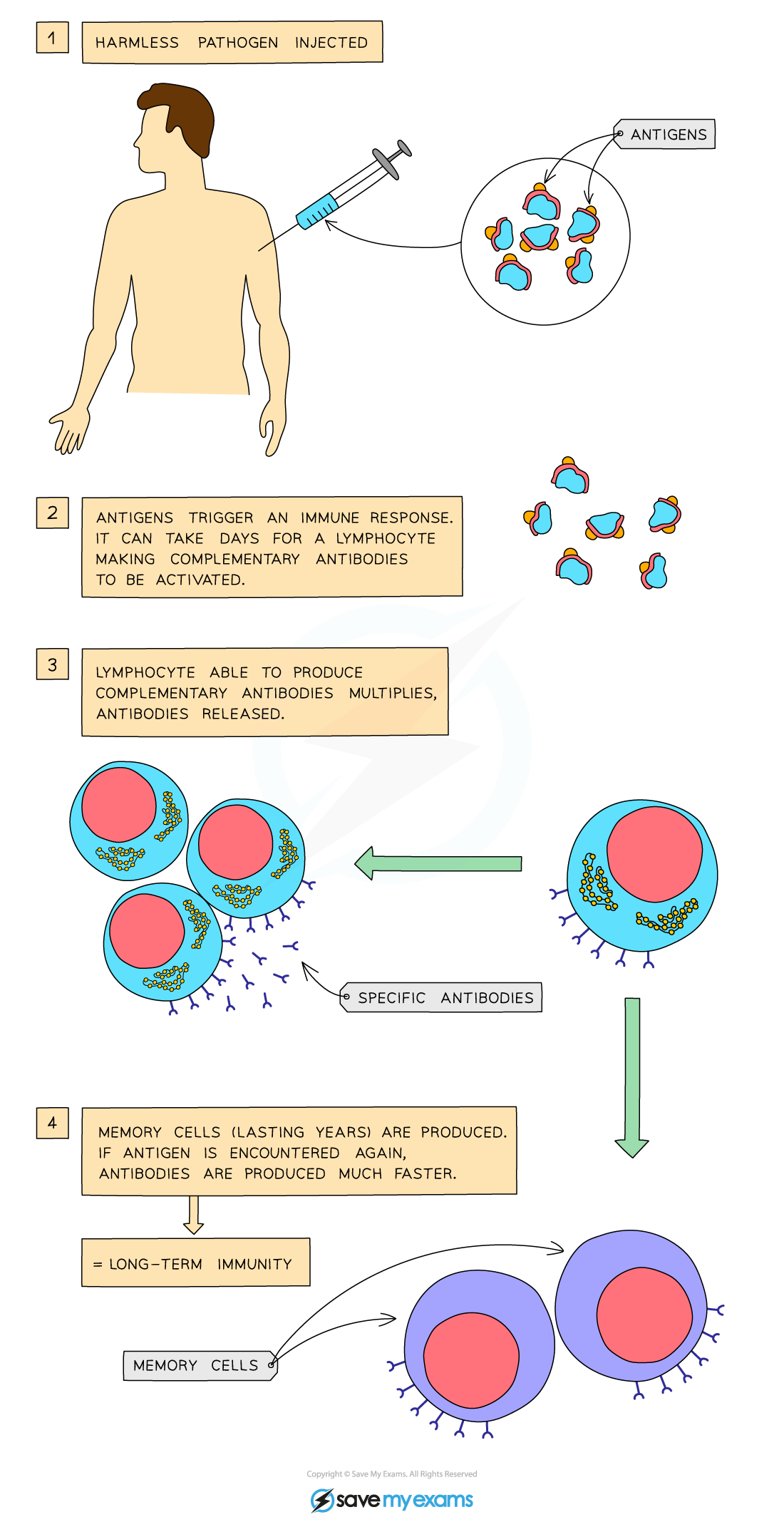- 翰林提供学术活动、国际课程、科研项目一站式留学背景提升服务!
- 400 888 0080
CIE IGCSE Biology: 复习笔记:10.1.5 Vaccination: Extended
CIE IGCSE Biology: 复习笔记:10.1.5 Vaccination: Extended
Vaccination: Extended
- Vaccinations give protection against specific diseases and boost the body’s defence against infection from pathogens without the need to be exposed to dangerous diseases that can lead to death
- The level of protection in a population depends on the proportion of people vaccinated
- Vaccines allow a dead or altered form of the disease-causing pathogen, which contains specific antigens, to be introduced into the body
- In this weakened state, the pathogen cannot cause illness but can provoke an immune response
- Lymphocytes produce complementary antibodies for the antigens
- The antibodies target the antigen and attach themselves to it in order to create memory cells
- The memory cells remain in the blood and will quickly respond to the antigen if it is encountered again in an infection by a ‘live’ pathogen
- As memory cells have been produced, this immunity is long-lasting
 Vaccination
Vaccination
转载自savemyexams

最新发布
© 2025. All Rights Reserved. 沪ICP备2023009024号-1









